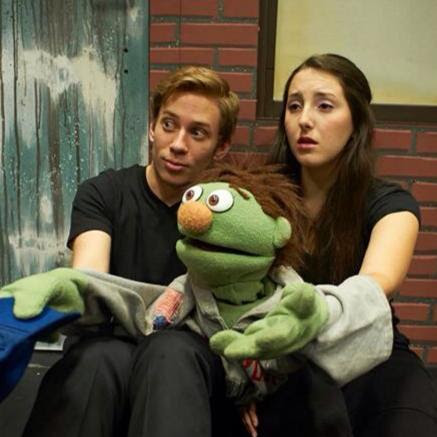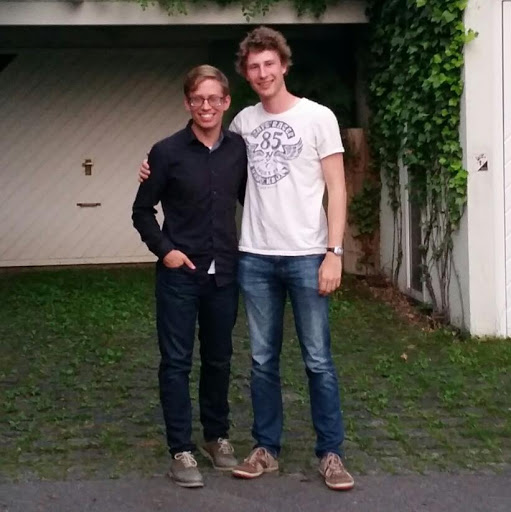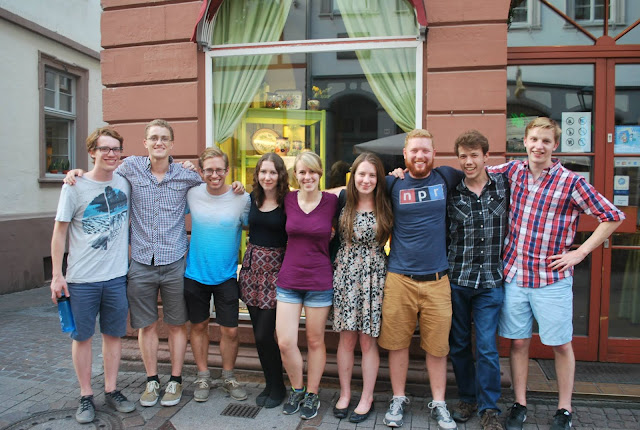#StudyAbroadBecause Diversity
Charles Kronk (charleskronk.com) is a junior at the University of Pittsburgh majoring in bioinformatics with focuses in German studies, international studies, neuroscience, computer science, web development, statistics, biology, chemistry, global health studies, European politics and theatre arts (because choosing any one thing was just too difficult).
He is a DAAD RISE Scholar and Full Tuition Scholarship recipient at the University of Pittsburgh and has participated in club productions of Spamalot and The Drowsy Chaperone as well as University productions Avenue Q and this season's Rhinoceros. Charles has worked with the Clark Lab in the Computational Biology department and the Department of Biomedical Informatics with doctors Richard Boyce and Gerald Douglas. He founded the University of Pittsburgh Rotaract Club and continues volunteer efforts both here and abroad with Rotary International.

What motivated your decision to go abroad? How/why did you choose where to go?
My decision to go abroad to Germany was two-fold: I had been to Germany previously via Rotary exchange my junior year of high school and so was relatively familiar with the area, but the DAAD RISE gave me an opportunity to work abroad in my field and experience the EMBL-EBI (European Molecular Biology Laboratory, European Nucleotide Archive). The research methods I learned in Germany were absolutely invaluable in the field of bioinformatics and the lab I was working in was cutting-edge, so that decision was easy.

What was your experience like? What is your favorite memory? What were some challenges you observed?
My experience was interesting. It was no walk in the park for sure. Money was a constant issue, especially since the paychecks weren't always on time and were out-of-sync with rent payments. My advisor was amazing, but it was his first time bringing on a foreign student, so finding housing was all up to me. Being on my own in that respect was definitely difficult, but made the experience more real, as my hand wasn't really being guided from place to place as in a traditional exchange.
My favorite memory was probably from my brief time in Brussels. I was staying at an Airbnb location (it was an old piano repair shop in the French quarter) and another visitor (he was a half-Mexican, half-Australian guy visiting his parents in Belgium) and I experienced the city together for a day. We got nowhere on time and were super frustrated, but we met a lot of great people and saw a lot of "non-touristy" sites by complete accident. The idea of vacationing without planning is daunting, but very exciting, in my opinion.

What skills did you develop from your experience? Do you feel changed from your experience abroad?
Money management. Time management. Telling the temperature in Celsius. Knowing my height and weight in metric. German language skills for sure. Non-lingual communication of ideas. How to write and present a scientific review.
I definitely feel changed from the experience, as it really forced me to "grow up" in way––college sometimes is too homogeneous and not challenging in the same way life after college is and of course being thrown into that world is scary, but it's necessary. For me, this was a trial by fire.
Has your experience helped you get to where you are today?
It definitely has: utilizing connections I made via my internship has helped me in almost every facet of my life, personally and professionally. Being in the small scientific community that is bioinformatics makes every connection as such invaluable. Being able to reconnect with my friends from my previous exchange strengthened my Rotary International network while also just making the experience more fun (not to mention that it gave me a bit of a "safety net" just in case things went wrong).

What advice would you share with other students who are thinking of going abroad?
(1) Secure your finances.
(2) Secure your finances.
(3) Know how to call the emergency number wherever you are.
(4) Make local friends. There are so many ways to do this:
(4a) Find a tandem on Facebook in order to practice local languages while simultaneously helping someone else learn a language.
(4b) Find an exchange group or a local group in something you're interested in. Once again, Facebook is great to find these.
(5) Utilize Airbnb and buses as much as possible because money.
(6) Secure your finances.
(7) Use Transferwise to send money. Way easier and better than PayPal or any other transfer method. Seriously, I wish I had known that this existed beforehand.
(8) Know how to cook. This means going to local markets/supermarkets. Find 2 – 3 easy dishes. Trust me, this helps save money. Like a lot of money.
(9) Secure your finances.
(10) Limit time speaking to people back home. FOMO can be really depressing and any time you spend worrying about what you are missing means you are missing doing cool things where you are.
(11) Know how to get ahold of a taxi or Uber no matter where you are. Additionally read up on and understand local public transportation.
(12) Be able to function without a cell phone or internet if necessary. This seems trivial, but becomes very important if you have no cell or internet service. If you do want/require cell service, use a SIM card (they're pretty cheap, however this option is somewhat limited if you have an iPhone).
(13) Know at least the courtesies of any locality in which a different language is spoken. Your knowledge of the language should be proportional to the amount of time you plan on spending there.

How has international education impacted or influenced your cultural identity?
International education has shaped my entire career path––and opened up a whole new range of opportunities for me (in addition to widening my horizons to a different cultural viewpoints).
Is there anything else you'd like to share with us?
Study abroad intelligently. It is possible to do so incredibly cheaply and get international experience without bending over backwards.
#StudyAbroadBecause Diversity. Yes, It sounds cheesy, but so much of what we take for granted is rooted in culture and language. Experience something completely different. Experience the world.
Stasia Lopez is the Global Education Editor for Wandering Educators and is also a Career Consultant at the University of Pittsburgh. She graduated with her Master’s degree in Educational Leadership in Higher Education and Student Affairs from Western Michigan University and earned her Bachelor of Science in Business Administration degree in Hospitality and Tourism Management from Robert Morris University. Stasia is passionate about international education, travel, and loves working on a college campus. She’s lived in four different U.S. states (Florida, Michigan, South Carolina, and Pennsylvania) and also studied and lived abroad in Rome, Italy. Stasia lives in the Pittsburgh area with her husband, Fernando.
All photos courtesy and copyright Charles Kronk
-

- Log in to post comments



















